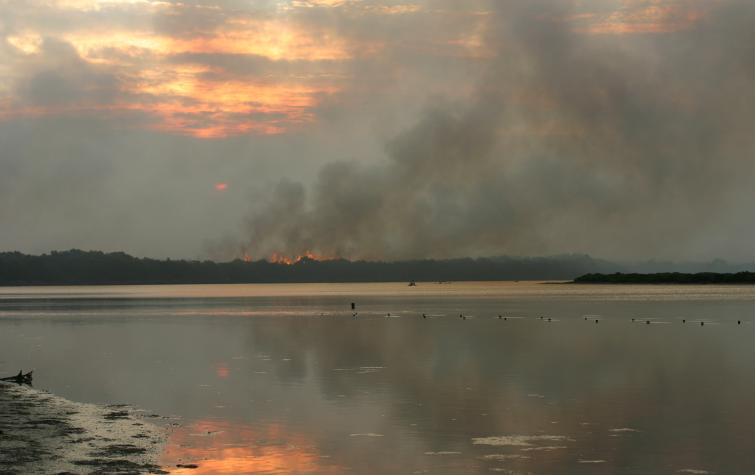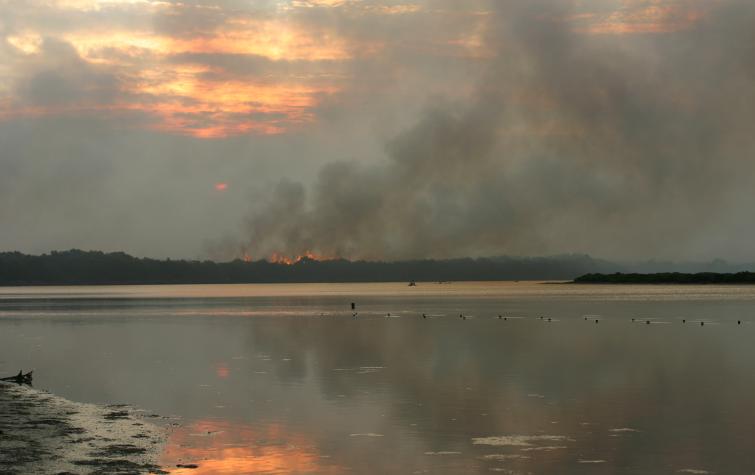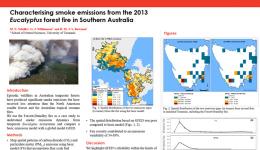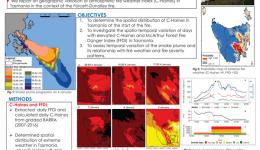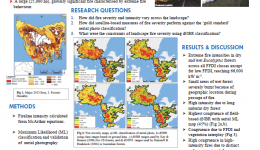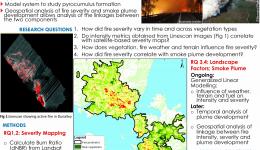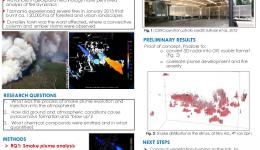Mercy Ndalila’s research involves a geospatial analysis of the 2013 Forcett-Dunalley fire that burnt approximately 26,000 hectares in south east Tasmania. By examining geographic patterns of fire severity in different forest types using remote sensing techniques and analysing landscape factors governing this severity, Mercy will be able to provide fire managers with new information about extreme fire behaviour.
Mercy has 13 years’ combined experience in biodiversity conservation and research and is also a volunteer firefighter with the Lenah Valley Fire Brigade, with an aim of gaining practical skills in fire management and to bring to life the theoretical principles of fire science.



